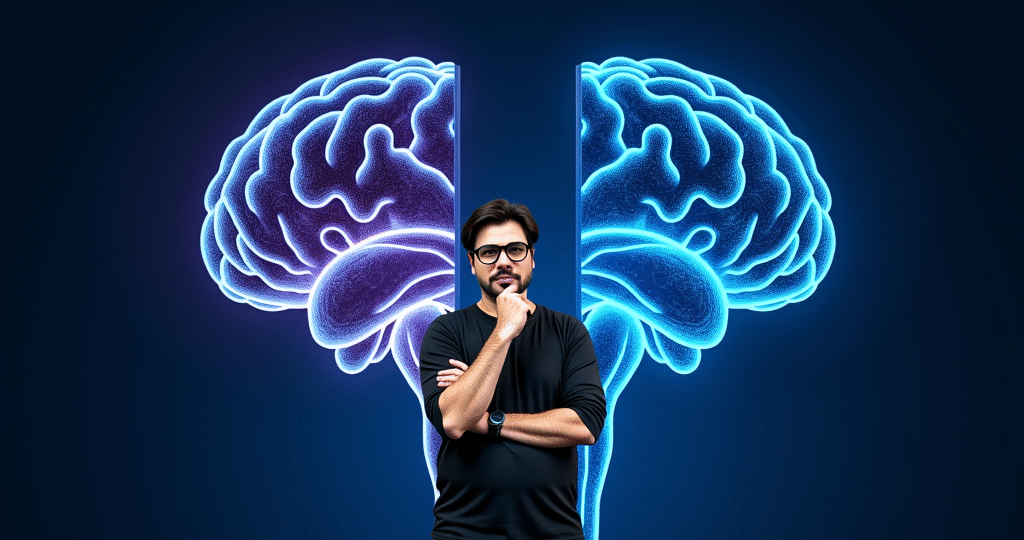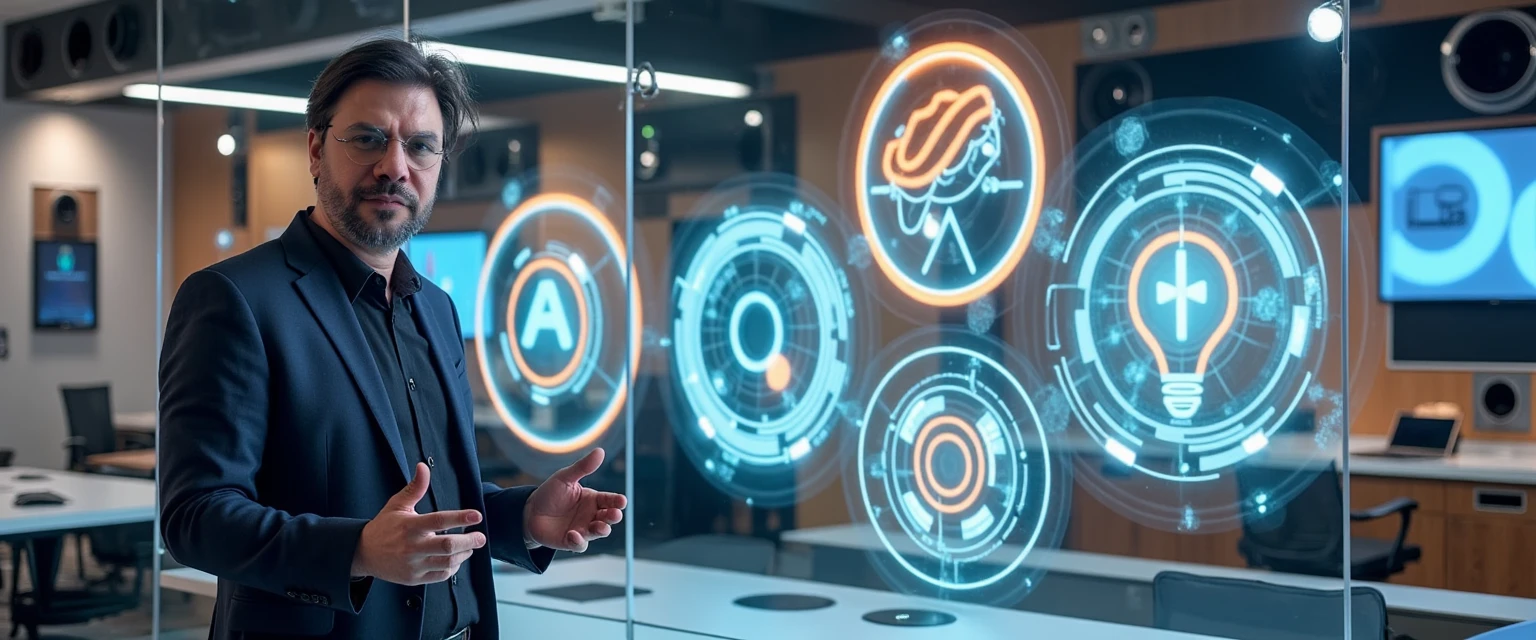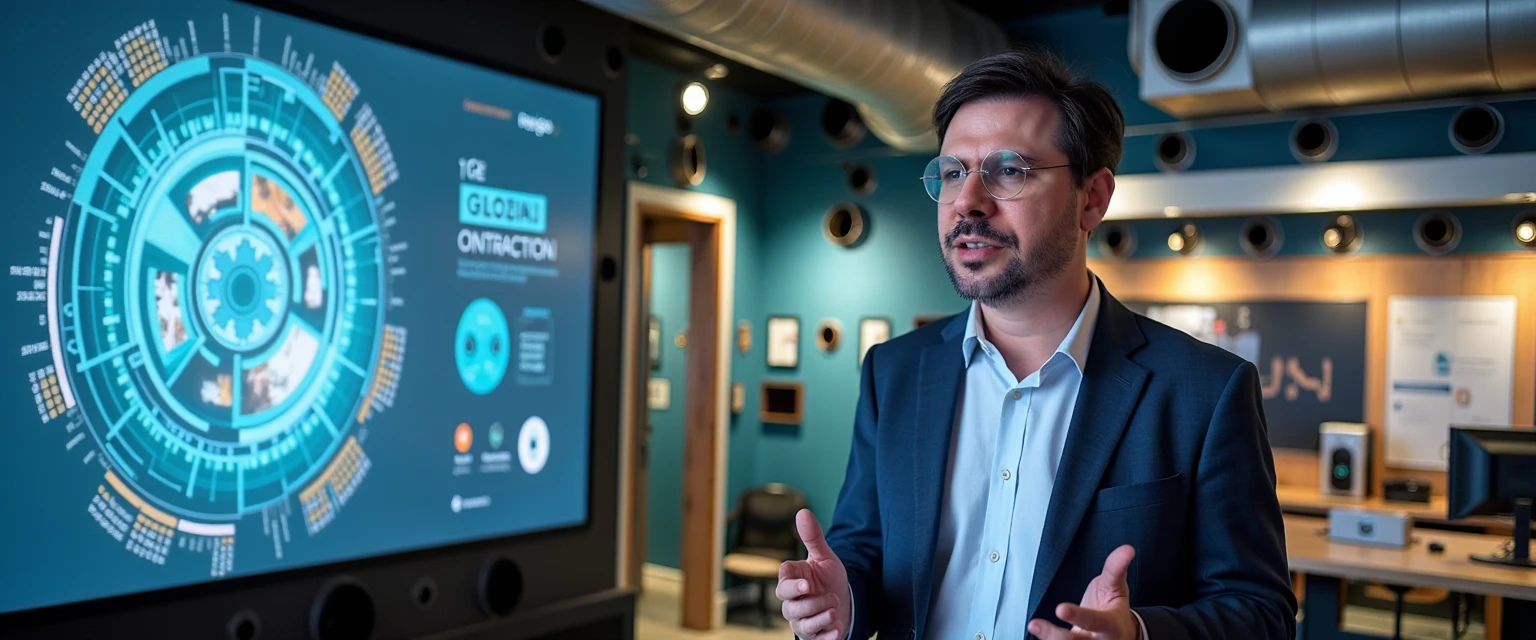MIT Study Reveals AI Paradox: Why Too Much Ease May Be Harming Our Ability to Think
June 30, 2025 | by Matos AI

Have you ever stopped to think about whether we are using artificial intelligence intelligently? In the last 24 hours, a series of scientific discoveries have forced us to reflect on something that many of us suspected, but few dared to verbalize: perhaps we are doing it wrong.
THE MIT's groundbreaking study that followed 54 people over four months brought to light an uncomfortable reality: the overuse of AI is literally changing the structure of our brains — and not necessarily for the better.
The Experiment That Changed Everything
MIT researchers divided participants into three fascinating groups. The first used only ChatGPT, the second used traditional tools like Google, and the third relied solely on their own cognitive abilities. The result? Through electroencephalography, they found that AI users showed significantly weaker brain connectivity.
Join my WhatsApp groups! Daily updates with the most relevant news in the AI world and a vibrant community!
- AI for Business: focused on business and strategy.
- AI Builders: with a more technical and hands-on approach.
This isn't just a scientific curiosity. It's a red alert about how we're outsourcing our intelligence without realizing the consequences.
As someone who has been watching technology for 25 years, I can tell you that I have rarely seen anything as shocking as this discovery. I remember when we first started using calculators in schools — there were similar debates about whether we were losing math skills. But this is different. We are talking about the process of thinking itself.
The Phenomenon in Universities
At the same time, a important alert emerged from universities, where teachers are observing a disturbing transformation. Tools like ChatGPT, Gemini and DeepSeek are captivating students with their speed and seemingly flawless responses, but Taking a High Toll: The Erosion of Critical Thinking and Creativity.
Studies from Harvard, MIT and Cambridge reveal that excessive reliance on AI causes a “cognitive offload” that compromises intellectual development, especially in young people in training. It’s as if we are creating a generation that knows how to ask questions, but doesn’t know how to think.
The Efficiency Paradox
Here’s the paradox: AI promises efficiency, but at what cost? When I can write a text in under a minute with AI, am I saving time or losing the ability to articulate complex thoughts? When I can instantly look up any information, am I becoming smarter or just more dependent?
Neurologist João Brainer de Andrade, quoted in the study, makes a disturbing observation: the current generation may have a lower IQ than the previous one due to the increasing use of artificial intelligence that discourages learning and “atrophies” the brain.
Not Everything Is Roses: The Positive Sides
But before we throw all AI tools in the trash, let’s look at the bigger picture. The news over the past 24 hours has also brought fascinating examples of how AI can be a powerful ally when used properly.
Content creators are benefiting from AI to optimize creative processes, analyze trends, and enhance data-driven strategies. The tool allows them to focus on creativity while AI takes care of operational tasks.
In medicine, scientists at Florida Atlantic University developed a revolutionary tool that uses AI to identify neurological disorders through eye movements, analyzing videos recorded by smartphones. It is a low-cost alternative that can facilitate access to specialized medical care, especially in remote regions.
The Billion Dollar Race and Its Challenges
As we debate the conscious use of AI, competition between AI companies has generated the largest expenditure in history, with projections of trillions of dollars in the coming years. This unbridled race for innovation has a dark side: how can we ensure that speed does not compromise quality and ethics?
A worrying example came from Oxford, where researchers warned that AI models are confusing gender with biological sex, undermining health information and reinforcing stereotypes. This shows how rushing can create dangerous biases that impact real lives.
Balance is Key
After decades working in technology and supporting thousands of startups, I've learned that the problem is never the tool, but how we use it. AI is neither villain nor hero — it is a powerful tool that requires wisdom in its application.
Technology expert Ricardo Marsili, quoted in the MIT study, hits the nail on the head: AI should be used as an ally and not as a substitute. It is crucial to maintain limits on technology use to preserve human endeavor and mental health.
Principles for Intelligent Use of AI
Based on the findings of the last 24 hours and my practical experience, I propose some fundamental principles:
- 70/30 Rule: Use AI for 30% of the creative process, keep 70% of human cognitive effort
- First thought: Always articulate your own answer before consulting the AI
- Critical validation: Never accept AI responses without critical analysis
- Diversity of sources: Combine AI with traditional research and human sources
- Cognitive training: Dedicate time to mental exercises without digital assistance
Implications for Business and Education
If you’re a business leader or educator, these findings have profound implications. It’s not about banning AI, but about rethinking how to integrate it in ways that augment, not replace, human thinking.
For companies, this means rethinking training programs. How can we retain teams that use AI but do not lose their critical thinking skills? How can we ensure that automation does not result in the “automation” of people?
For educators, the challenge is even greater. How do you teach in a world where information is just a click away, but critical thinking is increasingly rare?
The Future of Work Post-ChatGPT
We are living through a unique transition in history. For the first time, we have tools that can simulate human cognitive processes, but that doesn’t mean we should abandon our own brains. On the contrary, we need to develop them in a way that complements AI.
The most valuable skills of the future will be those that AI cannot replicate: genuine creativity, critical thinking, emotional intelligence, and the ability to make unexpected connections between seemingly unconnected ideas.
Opportunity Lies in Consciousness
The news of the past 24 hours has given us a gift: awareness. We now know that overused AI can harm our cognitive abilities. But we also know that, when used wisely, it can be a powerful ally in solving complex problems and amplifying our creativity.
The question is not whether we should use AI, but how to use it in a way that makes us smarter, not more dependent. It's about keeping control of the tool, not letting it control us.
We live in a unique moment in human history. We have the power to shape how technology integrates into our lives. The scientific discoveries of the past 24 hours are a reminder that this responsibility is ours — and the time to act is now.
In my mentoring with leaders and entrepreneurs, I’ve observed that those who can find this balance between harnessing the potential of AI and keeping their cognitive capabilities sharp are the ones who are standing out in the market. It’s not about choosing between human or artificial — it’s about creating an intelligent synergy between the two.
✨Did you like it? You can sign up to receive 10K Digital's newsletters in your email, curated by me, with the best content about AI and business.
➡️ Join the 10K Community here
RELATED POSTS
View all



